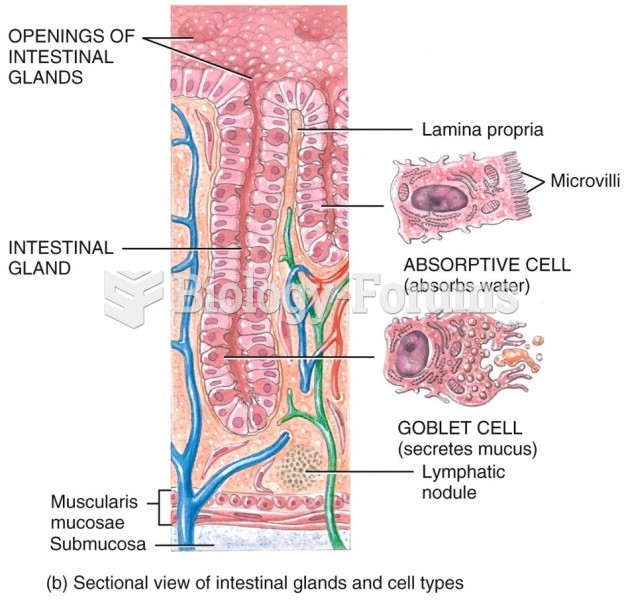|
|
|
Long-term mental and physical effects from substance abuse include: paranoia, psychosis, immune deficiencies, and organ damage.
Most childhood vaccines are 90–99% effective in preventing disease. Side effects are rarely serious.
On average, the stomach produces 2 L of hydrochloric acid per day.
Pubic lice (crabs) are usually spread through sexual contact. You cannot catch them by using a public toilet.
Hypertension is a silent killer because it is deadly and has no significant early symptoms. The danger from hypertension is the extra load on the heart, which can lead to hypertensive heart disease and kidney damage. This occurs without any major symptoms until the high blood pressure becomes extreme. Regular blood pressure checks are an important method of catching hypertension before it can kill you.







